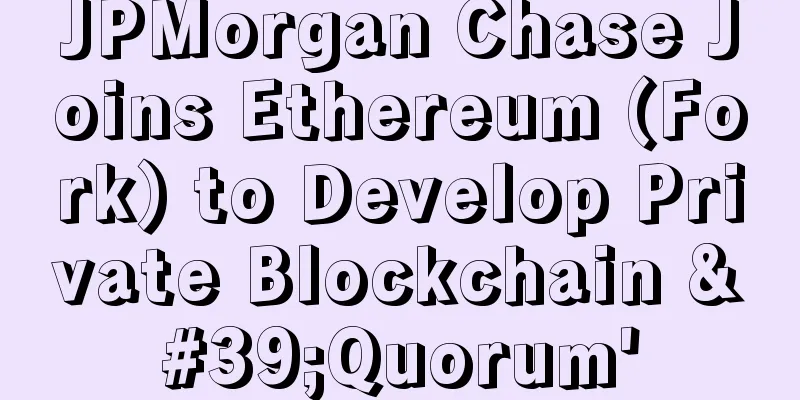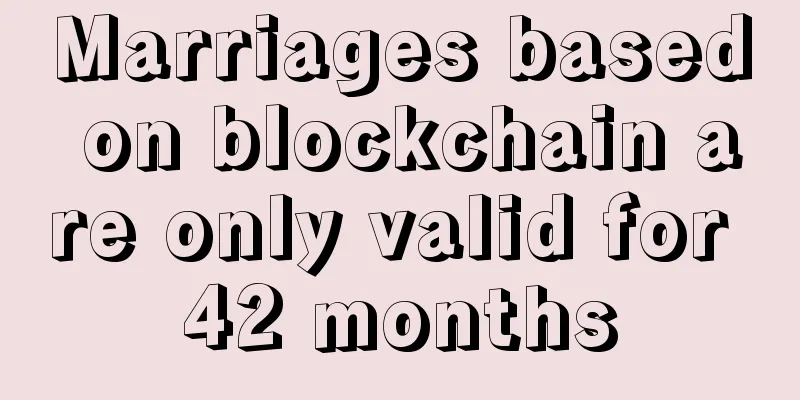JPMorgan Chase Joins Ethereum (Fork) to Develop Private Blockchain 'Quorum'

|
JPMorgan Chase, the largest bank in the United States with $2.35 trillion in assets, is creating a private blockchain based on a fork of Ethereum, according to a recent statement. JPMorgan Chase and EthLab, co-founded by Ethereum core developer Jeffrey Wilcke, created the Quorum project. Quorum is a "minimal fork" of the Go Ethereum client and a "derivative of Go Ethereum." In the project introduction, JPMorgan Chase said that Quorum can process hundreds of transactions per second and improve privacy because smart contracts can only be verified by the parties involved in the contract. The Quorum presentation shows a high-level view of a private blockchain architecture with four components: a network administrator who controls access to a permissioned network, a 'crypto-enclave' for managing private keys, a transaction manager for data storage and communication and for accessing encrypted private transactions, and a quorumchain that leverages core Ethereum functionality to validate and propagate nodes. Wilcke provided more details about Quorum in a conversation with CCNA:
1. Block creation and verification mode Back during devcon1, I was toying with the idea of creating a different model for block validation and creation, where instead of mining, you use an on-chain voting contract to decide blocks. In short, voting determines the next block, and blocks can be created by any number of applicants. The voting contract can then be used to validate blocks, and this allows for a neat upgrade strategy without forking. I think this idea is pretty neat overall, as it allows everyone to vote on 'new rules'. It's not yet implemented, but it would look something like this: i. Proposed a new set of rules and time limits ii. Collecting ballots and determining results iii. Use new rules I think this is a great idea because we can use the same consensus principles to determine new consensus principles, whereas normally you would have to hard fork and release a new client. 2. Customized consensus principles JPMorgan’s chain requires special rules that will allow private transactions, such as a distinction between private contracts, which can be seen by everyone, and public contracts, which can only be seen by those who have access to a particular participant’s key. Why is Everyone Forking Ethereum?JPMorgan Chase's project is the latest example of many mainstream companies that are researching private blockchains, most of which choose to fork Ethereum. JPMorgan Chase is a member of the Hyperledger Project and the R3 blockchain consortium, which is currently creating a private blockchain protocol from scratch. The main reason is the first mover advantage of Ethereum, as it was the first to implement smart contracts and has a large developer community, which can be reflected in Shanghai. The most important reason is probably the security of Ethereum, which is currently securing $1.1 billion and is being battle-tested every day. In addition, we can also imagine interoperability between private Ethereum blockchains and public chains, which may be desirable in the future and may be easier than two completely different protocols. Of course, Hyperledger and R3’s Codra may have their own specific use cases, but if the 80/20 rule starts to emerge in favor of Ethereum, we can imagine that both private and public chains will benefit because they can share results in some common areas, perhaps sharing 80% or more of the code, making it easier to set standards, allowing projects to interconnect, and somehow merging the public and private blockchain fields in most aspects of development, bringing resources closer together, and private and public chains can learn from each other’s experience. This is probably why most companies choose to fork Ethereum for their private blockchains and why the Ethereum community is open to such development. How the relationship between private and public blockchains develops, time will tell. |
<<: Summary of blockchain and blockchain technology
>>: More than 50 banks are clamoring to adopt blockchain technology, but few have taken action
Recommend
Announcement | Ethereum Constantinople Upgrade Announcement
The Ethereum network will activate the planned up...
Fingerprints can tell whether a person is destined to work hard.
Everyone's fingerprint is unique, and fingerp...
The appearance of a man who is constantly successful in his career
Men who are successful in their careers are the i...
IPFS Weekly Issue 102: Quick Reading of Important Events This Week
Welcome to IPFS Weekly The InterPlanetary File Sy...
What facial expression is best for resolving embarrassment?
Many times, we will inevitably encounter embarras...
What does a narrow forehead mean?
A person with narrow eyebrows (narrow yintang) me...
The facial features of a naturally romantic woman
Most people would use the word "romantic&quo...
What is the best marriage line?
In the palm, each palm line is long or short, and...
New Viper mining machine testing, Bitmain's cloud mining service debuts
September is here, and the weather is right for m...
The face that can only play a supporting role in everything
Some people are destined to be the protagonists t...
Celebrities with good looks
"Appearance is determined by the heart"...
When will you get promoted?
When will you get promoted? Each of us works hard...
What kind of people are the most loving?
If everyone gives a little love, the world will b...
Former Mt Gox CEO Mark Karpeles: Haven’t you figured out block size yet?
Mark Karpeles, the former CEO of Mt. Gox, who was...
Ukraine's Central Bank explores Bitcoin blockchain technology and promotes Bitcoin regulation
Representatives of the Ukraine Bitcoin Foundation...









